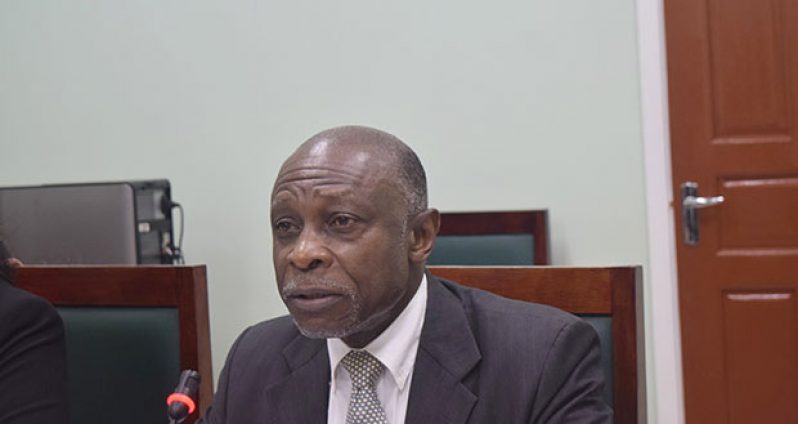By Derwayne Wills
BY A small majority, the United Kingdom voted two days ago to exit the European Union (EU), reducing that political and economic bloc to 27 member states.The campaign, which culminated in a referendum initiated by UK’s Prime Minister David Cameron, was long in the making. Cameron’s push for the campaign sought to dispel decades-old contentions of whether the UK would benefit more from cutting ties with the EU, which it entered in 1973.

Global leaders, political analysts and economists had all warned against the UK’s pullout from the EU, dubbed “Brexit”. At home, UK High Commissioner to Guyana, Gregory Quinn, said his country is aware of the concerns of Guyana, but assured that it is still too soon to assess the impact of the UK vote, especially since the negotiation process for ‘Brexit’ could last two years.
“In the short term, nothing changes. In the long run, we need to negotiate the exit process, and I can’t tell you what that might actually look like at the end,” Quinn said in an invited comment to this newspaper yesterday.
Quinn could not go beyond the statements made by his Prime Minister, following the vote across the United Kingdom.
Meanwhile, Presidents of the European Parliament, Council, and Commission — Messrs. Martin Schulz, Donald Tusk and Jean-Claude Junker respectively — met with Mark Rutte, holder of the EU Council presidency, in Brussels, Belgium yesterday to discuss the outcome of the UK referendum.
“We now expect the United Kingdom Government to give effect to this decision of the British people as soon as possible, however painful that process may be,” the EU’s statement read. It added: “Any delay would unnecessarily prolong uncertainty.”
Now that the UK referendum is over, ending years of debate that could be traced back to the UK’s Margaret Thatcher administration from 1979 to 1990, the country’s government must activate Article 50 of the EU Treaty, which spells out the procedure for countries quitting the 28-country political and economic bloc.
The United Kingdom is Guyana’s principal ally in the European Union, considering this country’s former colonial ties to the UK. And even in the height of ‘Brexit’ Guyana will, on Monday, sign with the EU an agreement which will see this country receiving Gy$2B in budget support.
Guyana’s Foreign Minister, Carl Greenidge, hosting a press conference yesterday, told reporters that in the short-term he does not foresee any consequences which would affect trade between Guyana and the European Union. As one of the countries grouped in the African, Caribbean and Pacific (ACP) bloc, Guyana benefits from funding from the European Development Fund (EDF).
“Depending on how Britain exits, if they exit at all, it will decide the way forward with ACP and EU relationship,” Greenidge added.
The UK’s representative in Guyana said he has been in communication with Guyana’s foreign minister, and that he foresees himself speaking on the issue for the next coming weeks or months. However, he said there is little to say at this early time, since only a few hours have passed since the announcement of ‘Brexit’.
Immediately following the ‘Brexit’ announcement, Britain’s Prime Minister David Cameron announced his resignation, after just winning his second term in office. Cameron’s resignation takes effect from October, when a conference of his Conservative Party would decide who is that country’s next leader.
PM Cameron said he will guide his country through the process of severing ties with the EU, but would step aside to allow for younger leadership to steer the country into its next stage.
Meanwhile, the EU maintains that negotiations with the UK will include areas for continued collaboration. “As regards the United Kingdom, we hope to have it as a close partner of the European Union in the future. We expect the United Kingdom to formulate its proposals in this respect. Any agreement which will be concluded with the United Kingdom as a third country will have to reflect the interests of both sides and be balanced in terms of rights and obligations,” the EU statement read.




.png)









